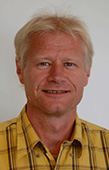*Added 3 keynote PP presentations 02.12.2014, see below each keynote.
Halvard Vike.
Professor
Department of Social Anthropology, University of Oslo
halvard.vike@sai.uio.no
Download presentation of keynote held on Nordic Ruralities (PDF):
Nordic Ruralities – Keynote – Halvard Vike Full text
Keynote title:
“Rural Modernities and Welfare in the Northern European Periphery: A Comparative Perspective”
The Nordic countries represent a particular version of European modernization. Modernization processes in Norden were heavily influenced by the mobilization of the non-privileged classes, who became unusually successful politically. Moreover, contrary to what most modernist narratives of development convey, the processes generating social and political transformations towards “democratic capitalism” during the late nineteenth century onwards were primarily rural, rather than urban. “Modernizing institutions” were to a great extent embodiments of the sociocultural reality of the periphery. The key illustration is the Nordic political institution par excellence: the municipality. The municipal institution can be characterized by its (relatively) small size, a high degree of institutional complexity, and a great amount of service providing responsibility.
Nordic municipalities absorb a major part of the responsibilities assumed by the central state, which, clearly, are among the most ambitious among modern Western states. At the same time they are the key channel of political representation and interest-aggregation. The institutional strength necessary to deal with such major challenges does not, I hypothesize, stem from small scale, abundance of resources or some kind of cultural uniqueness, but rather from an exceptional trajectory of evolving complexity.
In my contribution to the conference, I would like to explore some of the important implications of this fact. I would like to argue that the forms of political representation developed through peasant-farmer (and proletarian) mobilization in the latter part of the seventeenth century and the first part of the eighteenth century, combined with the strong “liberal” idea of autonomy and the development of the welfare municipality, has given rise to highly interesting institutional forms and types of subjectivity. When seen in this light, rural modernities in the Nordic world are democratic modernities of a particular kind. In the contemporary neo-liberal world, democratic forms increasingly appear as surface forms of institutions that de facto can no longer be controlled from below, and which do not respond strongly to welfare needs among the citizenry. State institutions have failed dramatically when it comes to linking trust networks with political power, on the one hand, and with actually functioning bureaucratic forms, on the other.
The significance of the welfare municipality as an embedded institution of a particular type is well illustrated in welfare policy, broadly understood. The universalist orientation in most Nordic welfare policies has had the effect of radically reinforcing the ideal of individual autonomy, that is, freedom from personal dominance. Equally important is the more directly political implication of making municipalities a main service providing institution; it has strongly stimulated the growth of local system of political organization which is exceptionally sensitive to local demands, and which keeps a certain distance to neo-liberal and managerial elites. Political representatives are carefully controlled by their constituencies. These mechanisms may explain why it has proven very difficult to control the self-reinforcing expansion of elderly care, for example. Finally, welfare policies have proven vital in reproducing Nordic egalitarianism, which is most fruitfully seen as a side-effect of organizational forms through which members control each other “horizontally”. In Norden local politics involves issues of vital importance, and thus the social capital accumulated and shared within them is considerable.
A final set of questions to be addressed in this context relate to institutional complexity. The significance of multiplex relations cutting across the boundaries between formal and informal contexts in small municipalities can hardly be exaggerated. Multiplex relations in small scale institutions may be easily be absorbed by family networks, ethnic loyalty and/or clientelism, but in Norden they developed historically as a system of strongly formalized, individualistic social ties in face-to-face worlds. To a great extent political mobilization was about establishing relations that could secure social distance and free participants from becoming personally dependent on others. Simultaneously, the strong emphasis on the one man – one vote – principle secured a high degree of horizontal control; a distinct organizational culture which we may call a moral economy of voluntary membership. Thus, in a system of overlapping membership evolving within the context of local institutions that assumed the responsibility for political prioritization, bureaucratic organization and service provision, most participants became sociologically autonomous yet still tightly controlled in a multitude of ways. The institutional infrastructure thus created is less typically “Western” and urban than commonly thought, and at the same time much more influential. In one sense it represents a form of radical modernity. Its future significance is likely to be intimately linked with the universalist welfare state, which has created a broader scope for political involvement than any other political regime and institutionalized some fundamental limits to the autonomy of neo-liberal elites.
Annette Aagaard Thuesen
Assistant Professor
Danish Centre for Rural research/University of Southern Denmark
aat@sam.sdu.dk
Download PP Presentation of keynote held on Nordic Ruralities (PDF):
Nordic Ruralities – Keynote – Annette Thuesen
Keynote title:
“Local governance in new varieties in a changing welfare state – Volunteers in co-production and LEADER”
This keynote will focus on local governance in new varieties in a changing welfare state where rural communities to a still wider degree need to redefine their role. Villages in more distant regions have come under pressure and knowledge on what makes villages prosperous is continuously demanded from laymen, rural consultants and different authorities like ministries etc. Population decline, service closures (both public and private), traffic intensification etc. are just some of the changes forming the pressure. The keynote will outline what villages should do to develop according to the literature and what perspectives for development that can be found in local governance initiatives like LEADER and extended use of volunteers in co-production of services?
According to the literature on rural and regional development villages should focus on endogenous development and the importance of bringing local resources into play. Also mentioned is interplay between endogenous and exogenous development; institutional thickness or institutional capacity; concrete ability to attract funds and to some degree public investments. Thus, according to the literature, local communities’ own skills, mobilization, capabilities and their own efforts (including their institutional capacity) is of matter to development together with relevant external support. It is not enough to have a stock of tangible and intangible capital; the capital must also be activated and used. In addition, openness between several social fields is important and contributes to the formation of community agency and a community field.
The literature recommendations for village development could seem too optimistic and some would say naïve in light of the fact that many villages experience population decline. However, the opposite extreme trend, emphasizing close down of villages, haven’t got much historical empiric underpinning except from Popper and Popper (2002), Hollander (2011), www.shrinksmart.eu (which is urban oriented) etc. In addition it is a quite difficult strategy to follow if it lead to resistance among the local stakeholders and thus reduce the possible governance field. Instead, this keynote discusses empirical local governance initiatives that take up the village development challenge like the EU LEADER approach and different kinds of co-production between volunteers and the public sector.
Edward H. Huijbens
Director/Professor
Icelandic Tourism Research Centre/University of Akureyri
edward@unak.is
Download PP Presentation of keynote held on Nordic Ruralities (PDF):
Nordic Ruralities – Keynote – Edward Huijbens
Nordic Ruralities – Keynote – Edward Huijbens Full text
Keynote title:
“Tending to tourism – tourism’s role in thriving and declining communities”
This keynote will focus on rural communities and the role tourism plays in their economy and socio-cultural development. Tourism’s impact, both negative and positive, will be outlined placing emphasis on the ways tourism development can work for community empowerment. Controversies in tourism development will be investigated related to the geographies of production and consumption of tourism in a rural setting.
The keynote is conceptually inspired by post-structural theorising of spaces and places. Ruralities in this sense are simultaneously an effect of gathering deep-seated emotions and experiences and an open-ended and forever unfinished story. Due to their irreducibility a rurality can be shared and thus through tourism marketing and promotion the rural experience can be presented as a tourism product recognising the tourist as an author of his or her own experiences. Recognising the tourist as this author commands the attitude of respect that is a necessary precondition to any ethical notions of hospitality, which is a prerequisite for tourism’s role in community empowerment. Tending to tourism as an ever unfolding story thus leads to an understanding of community resilience in the face of change and risks and how these can be managed in just and responsible ways.
Susanne Stenbacka
PhD/Associate Professor
Department of Social and Economic Geography/Uppsala University
susanne.stenbacka@kultgeog.uu.se
Download PP Presentation of keynote held on Nordic Ruralities (PDF):
Nordic Ruralities – Keynote – Susanne Stenbacka
Keynote title:
“International migration and sustaining resilience in rural areas – individual and community strategies”
Rural communities across the Nordic countries are facing challenges as well as opportunities associated with national and international migration movements. National movements are often characterised by rural to urban streams, contributing to a depopulated countryside and a shrinking welfare sector. The local impact of a global process like international migration will take a variety of social and economic expressions. An increased population may strengthen the local labour market, increase the amount of public and private service and contribute to an amplified social environment. Encouraged in-migration may also put pressure on a municipality to supply certain services. Migrants on the other hand, may experience enhanced individual resilience or harbouring a longing for something else.
This key note will focus on community and individual strategies in sustaining resilience in relation to refugee migration into rural areas. With an ethnographic approach such processes are investigated and analysed using the resilience concept as organising tool. The interaction of local society and international migrants is used to identify and capture networks, ideas and practices and to give words to existing as well as reformulated and emerging roles for rural communities. Reconfigurations of relations on several levels occur, among places and individuals. These will contribute to an understanding of the mutual relationship involving community and individual resilience and also to uncovering the micro-politics which constitute and transform rural places.
About the keynote presenters
 Professor Halvard Vike, Norway
Professor Halvard Vike, Norway
Department of Social Anthropology, University of Oslo.
Halvard Vike is currently engaged in a variety of research projects. These projects span from research topics such as welfare policies (focusing on the relationship between state, local government and the street-level bureaucrats), the state of Norwegian local democracy to cognitive anthropology and political culture.
Halvard Vike is currently head of department, and until recently (2003-2009) he served as president of the Norwegian Association of Anthropologists (Norsk Antropologisk Forening).
Halvard Vike has written several books and a large number of articles on modernity and historical change, local community, local politics, political culture, Nordic ethnography, the Scandinavian welfare state, modern organizations, cognitive anthropology, identity and globalization. He has collaborated extensively with colleagues at Telemark Research Institute (Telemarksforsking) and has written a number of reports on welfare policy, elderly care, and local democracy. He has also given a wide range of talks on these topics on arenas outside of academia. Vike’s research has also been brought to the wider public in the form of two TV-series (each consisting of eight half-hour programs).
He contributed to The Norwegian Power and Democracy Research Program (1998-2003) with the book “Maktens samvittighet: Om politikk, styring og dilemmaer i velferdsstaten” (Gyldendal Akademisk 2002, with Heidi Haukelien, Runar Bakken, Arne Brinchmann and Randi Kroken). A follow-up of this book was published in 2004: “Velferd uten grenser: Den norske velferdsstaten ved veiskillet” (Akribe Forlag). In 2008 Vike published the book ”Nye kulturstudier” (Spartacus), collaborating with three Nordic colleagues, and in 2009 he edited ”Over profesjonelle barrierer” (Gyldendal Akademisk) with three Norwegian colleagues.
 PhD Annette Aagaard Thuesen, Denmark
PhD Annette Aagaard Thuesen, Denmark
Danish Centre for Rural Research, University of Southern Denmark
Annette Aagaard Thuesen has been working with rural development research and development since 2001. In May 2010, she defended her PhD about partnership organizing of rural development. More specifically the LEADER local action groups (LAGs) initiated by the European Union. The aim of the project was to contribute to theory development about horizontal partnerships from a democratic governance perspective. The empirical part of the project was built on two studies. The first study was a qualitative comparative research on LAGs in Sweden, Finland and Denmark for the Agricultural Section in the Nordic Council of Ministers. The second study was an externally funded project by the Danish Ministry of Food, Agriculture and Fisheries consisting of a quantitative survey to all 700 Danish LAG board members and their coordinators about their composition, activities and cooperation.
Annette Aagaard Thuesen’s current research lies in the empirical fields: The LEADER component of the EU Rural Development Programme and the Fisheries Programme, rural development in general and mobilization and planning processes related to rural development. The theoretical approaches in her research are democratic network governance, partnership organising, meta-governance and institutional capacity. She has published articles in Sociologia Ruralis, European Planning Studies and Local Government Studies.
Over the years, she has worked extensively on contract assignments for ministries. During winter 2013/14 she evaluates the 57 Danish LEADER local action group’s local development strategies for the Ministry of Housing, Urban and Rural Affairs. In 2011 she was the project leader on a contract assignment for the Ministry of Food, Agriculture and Fisheries on the added value of the LEADER approach in Denmark. In 2010 she made a study for the Ministry of the Interior and Health on the conditions for positive rural development.
Annette has worked for the European Evaluation Network for Rural Development as Geographical Expert for Denmark from 2007-2013 and she has been affiliated with the European Contact Point for Rural Development as a non-permanent expert during the same period. She has been a member of the expert committee to assist the regional council of the Central Denmark Region with the selection of recipients of the Central Denmark village award from 2010-2013.
Annette teaches at the programme in Sociology and Cultural Analysis at the University of Southern Denmark in Esbjerg. Besides research and teaching Annette lectures on village development and rural development through the LEADER approach for village associations and other organizations. Recently she has organized a course on municipal rural development plans for the Ministry of Housing, Urban and Rural Affairs together with the consultancy LandLabDK.
 Professor Edward Hákon Huijbens, Iceland
Professor Edward Hákon Huijbens, Iceland
Director of the Icelandic Tourism Research Centre and professor at the School of business and science at the University of Akureyri
Edward (born 1976) is currently the director of the Icelandic Tourism Research Centre (ITRC) along with holding a professors chair at the department of business and science at the University of Akureyri.
Edward completed an MA and subsequently a PhD at Durham University geography department in 2005, graduating in 2006. The department was ranked highest amongst UK geography departments in the UK Research Assessment Exercise (RAE) of 2008 and Edward received a full departmental scholarship along with the prestigious Overseas Research Scholarship (ORS) to pursue his studies there. Edward’s work in Durham departed from his undergraduate emphasis on landscape morphology and delved into spatial theory with fieldwork undertaken in Durham for the MA and Edinburgh’s Festival Square for the PhD.
Upon completing the PhD Edward got a post at the University of Iceland, doing research into innovation and entrepreneurship, studying e.g. successful small enterprises and the build up of the Reykjavík heating utility. Mostly though, Edward was teaching courses in both the faculty of science, department of geography and the faculty of business administration and economics. In the former he taught the philosophy of science and cultural geography in the latter he taught innovation and product development and markets and culture. After two years of work Edward was offered a post as the director of the ITRC, which is jointly run by the University of Iceland and the University of Akureyri. The head office is in Akureyri, N. Iceland where Edward is born and raised. Edward assumed the post in autumn 2006 and along with teaching tourism courses and consumer behaviour at the Uni he is involved in various research projects. His main interests lie in innovation, landscapes, spatial theory, product development and marketing of tourism.
At current Edward is involved in studying landscape experiences, health and wellness tourism, destination and regional development, innovation in tourism at peripheral destinations, destination images and to a lesser extent various marketing surveys both small and large of tourism in Iceland.
Edward lives in Akureyri with his wife and three children.
 Fil Dr. Susanne Stenbacka, Sweden
Fil Dr. Susanne Stenbacka, Sweden
Department of Social and Economic Geography, Uppsala University.
Susanne Stenbacka is an Associate professor in social and economic geography, employed as a senior lecturer. Her research is primarily on rural – urban relations with a focus on the transformation of rural areas in Sweden. With a specific interest for qualitative research, she is currently involved in research projects focussing rural masculinities and femininities, international migration into rural areas, recruitment of migrant farm workers, and ”future farmers” from a gender perspective.
